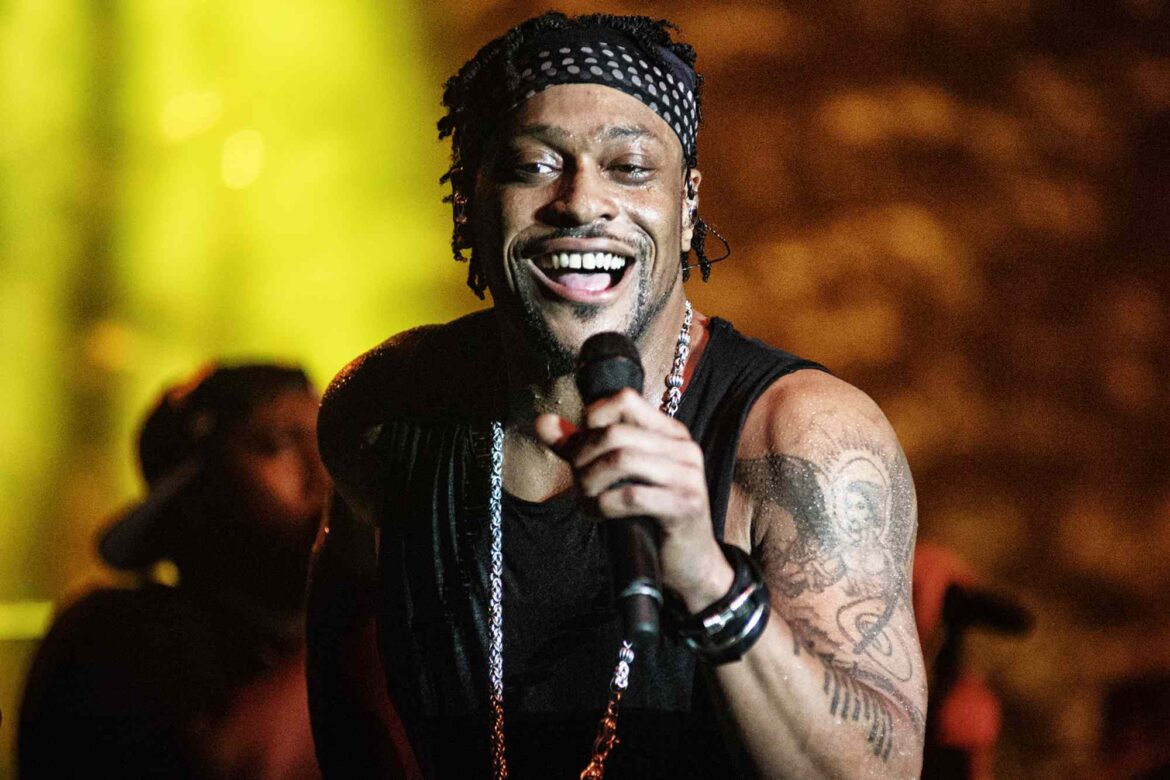
D’Angelo, one of the most influential and innovative artists of the 1990s and 2000s, has cemented his place in the pantheon of legendary musicians. Known for his unique blend of soul, R&B, neo-soul, and funk, D’Angelo’s music has shaped the soundscape of contemporary R&B. With a career spanning decades, he is celebrated for his powerful voice, heartfelt lyrics, and genre-defying sound. In this blog, we will explore D’Angelo’s journey, his musical contributions, and the lasting impact he has had on R&B music.
Who is D’Angelo?
D’Angelo, born Michael Lawrence Archer on February 11, 1974, in Richmond, Virginia, is an American singer, songwriter, and multi-instrumentalist. His debut album, “Brown Sugar”, released in 1995, revolutionized the R&B genre, making him a central figure in the rise of neo-soul. His music effortlessly blends traditional soul, gospel, jazz, and funk elements, with lyrics often touching on themes of love, spirituality, and personal growth.
D’Angelo’s influence extends far beyond just his albums. His vocal style, musical arrangements, and unique approach to rhythm have inspired countless artists, from fellow R&B singers to mainstream pop and hip-hop performers. Despite his relatively low output of albums, his presence in the music industry is undeniable, with each release garnering widespread attention and critical acclaim.
The Rise of D’Angelo: Brown Sugar and Beyond
Brown Sugar (1995)
D’Angelo’s debut album, Brown Sugar, immediately garnered attention for its smooth, sensual vibe and intricate instrumentation. The album, which featured hits like “Lady” and “Cruisin’”, showcased D’Angelo’s ability to fuse classic soul with modern R&B. Tracks such as “Brown Sugar” and “Shit, Damn, Motherfucker” showcased his deep, raspy voice, while his multi-instrumental talents shone through with his deft handling of piano, bass guitar, and drums.
The success of Brown Sugar helped define the neo-soul movement of the mid-1990s, a genre that emphasized organic, soulful music, with artists like Erykah Badu, Lauryn Hill, and Maxwell following in D’Angelo’s footsteps. The album was not only a commercial success but also critically acclaimed, earning several Grammy nominations and solidifying D’Angelo as a major new force in music.
Voodoo (2000)
The follow-up to Brown Sugar, D’Angelo’s “Voodoo” (2000), was nothing short of groundbreaking. A marked departure from the straightforward R&B sound of his debut, Voodoo was more experimental and daring, blending deep funk grooves, jazz improvisation, and psychedelic sounds. The album’s rich texture and D’Angelo’s unique vocal stylings became emblematic of his style.
Tracks like “Untitled (How Does It Feel)”, “Devil’s Pie”, and “Chicken Grease” showcased his vocal range and his ability to explore complex musical arrangements. “Untitled,” in particular, became iconic for its provocative imagery and sensual themes, further elevating D’Angelo’s status as a sex symbol. The album earned critical acclaim and won several awards, including a Grammy for Best R&B Album. “Voodoo” solidified D’Angelo as not just a prominent artist in the R&B scene, but a force in the world of contemporary music.
D’Angelo’s Impact on R&B and Neo-Soul
D’Angelo’s influence on R&B and neo-soul cannot be overstated. With his fusion of genres and focus on organic, live instrumentation, he helped reshape the sound of R&B music in the late 1990s and early 2000s. His music emphasized musicianship over production, showcasing soulful melodies, intricate rhythms, and heartfelt lyrics.
While many R&B artists relied heavily on digital production and catchy hooks, D’Angelo’s approach was more rooted in soul and funk, inspired by artists like Stevie Wonder, Prince, and Marvin Gaye. His music became a gateway for other musicians to explore deeper, more complex musical landscapes, influencing artists such as John Legend, Jill Scott, and Anderson .Paak.
His commitment to crafting deeply personal, vulnerable music has resonated with generations of listeners. His work has highlighted themes of identity, love, self-reflection, and spirituality, making his music not just enjoyable but profoundly relatable.
D’Angelo’s Hiatus and Comeback
After the massive success of Voodoo, D’Angelo took a lengthy break from the music scene, leaving fans eagerly waiting for new material. Rumors of his struggles with personal issues, including substance abuse and pressure to meet the expectations of the music industry, kept him away from the spotlight for over a decade. This period of silence led many to wonder whether D’Angelo would return to music at all.
However, in 2014, D’Angelo made a triumphant comeback with the release of his third album, “Black Messiah”. The album was a bold return, showcasing his unique blend of political activism, soulful introspection, and jazz influence. The album’s themes were deeply political, reflecting the social climate in the wake of the Black Lives Matter movement and tensions surrounding racial justice in America.
Tracks like “The Charade”, “Betray My Heart”, and “Really Love” resonated with fans old and new, solidifying D’Angelo’s relevance in the modern music landscape. “Black Messiah” was met with critical acclaim, winning a Grammy Award for Best R&B Album and proving that D’Angelo’s musical prowess had only deepened with time.
D’Angelo’s Legacy and Influence
D’Angelo’s influence is far-reaching, with his music still resonating with new generations of listeners. His ability to blend genres, emphasize live instrumentation, and infuse his music with personal and political themes has made him a timeless figure in modern music. Even though his releases have been sparse, each album has been met with anticipation, proving that D’Angelo’s artistry remains relevant in today’s music scene.
Not only has he inspired fellow musicians, but his work has also influenced the soundtracks of film, television, and fashion. His iconic appearance in the music video for “Untitled (How Does It Feel)” continues to be referenced as one of the most memorable moments in music video history, showcasing his lasting impact on pop culture.
D’Angelo: A Living Legend
Despite the limited number of albums released throughout his career, D’Angelo remains one of the most respected and influential figures in contemporary music. His combination of raw talent, creative freedom, and uncompromising artistic vision has made him a beloved icon, and his music continues to inspire new generations.
Whether through his soulful voice, groundbreaking albums, or his ongoing contributions to R&B and neo-soul, D’Angelo’s place in music history is firmly cemented. His career is a testament to the power of authenticity, innovation, and vulnerability in music.
Conclusion
D’Angelo’s journey through the world of R&B and soul music has been nothing short of remarkable. From his groundbreaking debut album “Brown Sugar” to his bold return with “Black Messiah”, D’Angelo has proven that he is much more than a musician—he is a cultural icon. His ability to seamlessly blend influences from funk, soul, jazz, and gospel has created a sound that is entirely his own.
As fans eagerly await his next move, one thing remains certain: D’Angelo’s impact on modern music is undeniable, and his legacy will continue to inspire artists and fans alike for generations to come.


